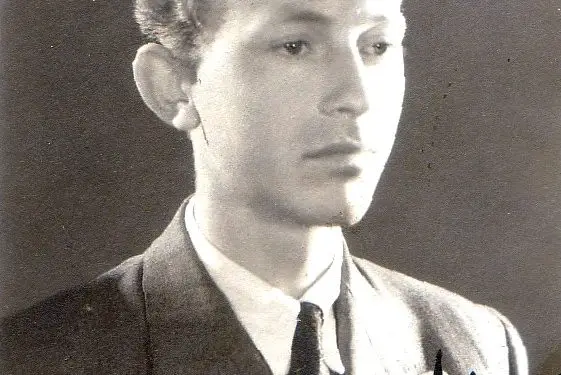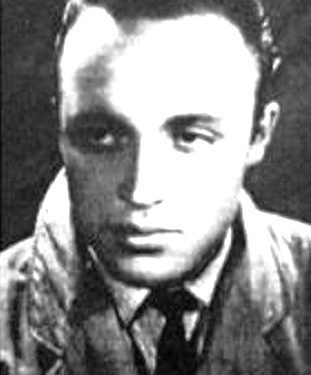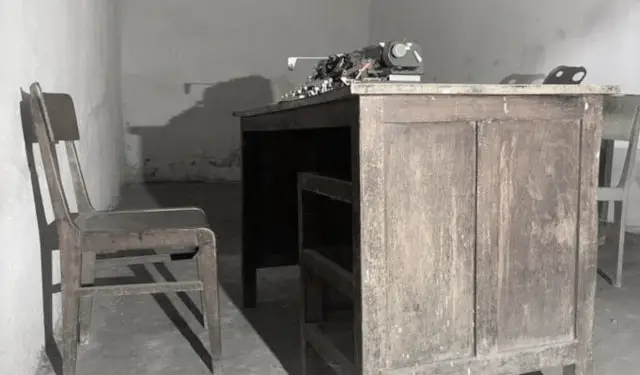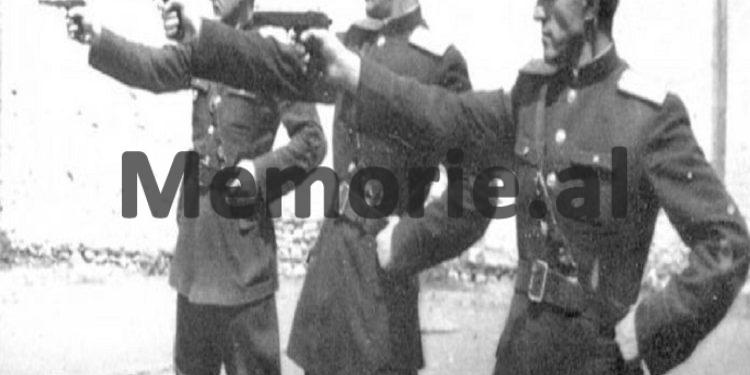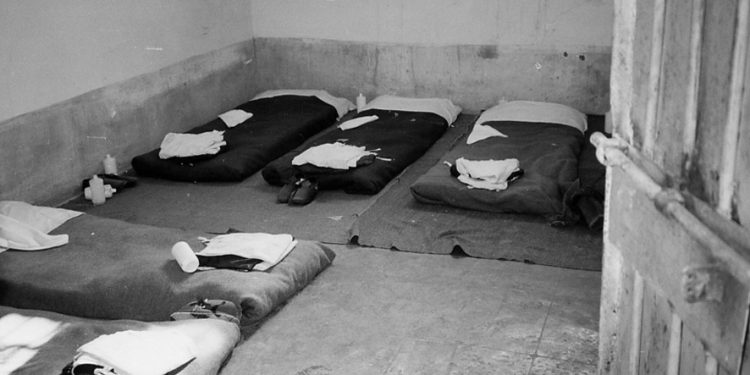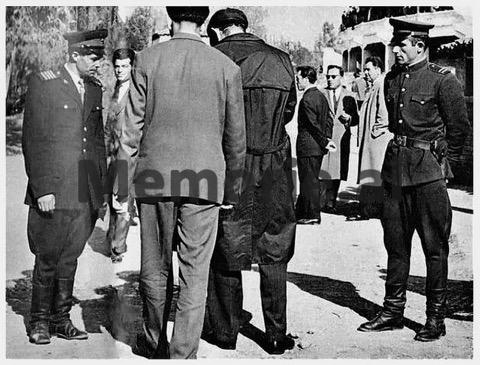By Uran Kalakulla
Part Sixteen
Nazism and Communism
Memorie.al / Nazism lasted 12 years, while Stalinism lasted twice as long. In addition to many common characteristics, there are many differences between them. The hypocrisy and demagogy of Stalinism was of a more subtle nature, which was not based on a program that was openly barbaric, like Hitler’s, but on a socialist, progressive, scientific and popular ideology, in the eyes of the workers; an ideology that was like a convenient and comfortable curtain to lie to the working class, to lull the sharpness of intellectuals and rivals in the struggle for power.
One of the consequences of this peculiarity of Stalinism is that the entire Soviet people, its best, capable, hardworking and honest representatives, suffered the most terrible blow. At least 10-15 million Soviets lost their lives in the KGB torture chambers, martyred or executed, as well as in the gulag camps and others like them, camps where it was forbidden to correspond (in fact, they were prototypes of the Nazi death camps); in the mines in the ice of Norilsk and Vorkuta, where people died from cold, hunger, from crushing work in countless construction sites, in the exploitation of forests, in the opening of canals and during transportation in leaded wagons, or in the flooded barns of the death ships.
Continued from the previous issue
– “Who came to meet me?”
– “I don’t know for sure, but it looks like the woman and her son.”
Bobo, what a new shock to my heart! It had always been a dream, since the first day of the dungeon, to see the two beings that, after my mother, were the most beloved of my life. They were to me like the sun and the moon; who adorned my “sky” of life; who gave it light and beauty, who gave my existence its very meaning.
I was very longing. Because even on the day of my arrest, I had not had them at home, but in Shkodra, for more than two weeks. Therefore, I could hardly bear the ever-increasing surge of a longing full of pain. Seeing me thus shocked, the officer continued to stammer; always with a trembling voice and, from time to time, the word getting stuck in his throat, as if he were in my role and I in his:
– “Listen! I don’t know where they got permission from, but don’t forget that the meeting is short. You understand that meetings like these are very rare and special”.
– “I understand!” – I replied dryly. But he continued:
– “And don’t tell them that you are condemned to death.”
– “You fool! Why didn’t my wife find out? If she didn’t have it anywhere else, she found out from the lawyer.”
– “Yes, I’m sure she would, but you don’t…”!
– “Mr. Captain, don’t tell me how to behave in this case, but if you’re going to do it, come quickly and let’s do this job. Don’t make my family wait too long…”!
The captain didn’t take it any longer. He ordered me to be taken to the meeting place. And, of course, he came with me. The place was in the grassy courtyard, between the prison and the dungeons. He put me in a corner of the wall, as if he wanted to hide me from someone, and told me to wait there. Those were truly shocking moments, and I was all eyes and ears.
After a while, I noticed a pair of small feet, clad in white shoes, approaching with light steps, towards the place where they had left me. And …before my eyes, my whole little soul appeared, my adored son, for whom I forgot the whole world; its best and worst. I came before him.
A small, smiling face; with beautiful honey-colored eyes; with those fresh, red lips, like rosebuds; with that tiny, upward-pointing chin, all the cuteness; as white and tender as any child. I had left him when he was two and a half years old. Now he was four years old. He saw me too and rushed towards me, all excited. I grabbed him in my arms and held him tightly, smothering him with kisses and smelling him with heat, like a flower in bloom. He had also embraced me, and he was hugging and kissing me longingly, without worrying that my unshaven beard might pierce him.
After him came my wife. No matter how wounded in spirit, she was still young and beautiful, like her. A noble, special beauty, of her nature, of her race. Like the beauty of a violet in bloom. She was a silent, humble beauty, with a pronounced modesty and seriousness, as was her true nature. We hugged each other with longing, very longing, but without letting go of the boy from my arms.
I had lit a damn cigarette that, earlier, and she, seeing the traces of the handcuffs on my hands, began to rub them with compassion, but she stumbled on the cigarette and burned her hand a little. However, she did not act at all. Then I started talking to the boy, so that I could listen to his chirping and the words that he knew how to arrange so beautifully, despite his youth.
– “Oh, what beautiful clothes you have, these white sailors, oh my god! When winter comes, this time, daddy will buy you a pair of blue sailor clothes, with long, beautiful pants. Okay”?
– “Ah, here you go, daddy,” my little one replied, “I have plenty of clothes, mom bought them for me, I don’t need them anymore, but come on, take them home, daddy, because I miss you so much”! I know how I restrained myself. The boy’s words were imprinted in my mind, in such a way that I haven’t forgotten them to this day, when 35 years have passed.
There are some things, events and words in a person’s life, that take root in the mind and soul and nothing can uproot them from there, except death. My wife, for her part, tried, desperately, to give me courage, telling me that all hope was not lost, that I was young and my “fault” was not who knows what.
– “Okay, okay,” I replied calmly. – Don’t worry, I’ve gotten used to these things. However, I want to leave you a couple of messages, as a trust, because you don’t know, so please take them into account. You are young and, if I am wrong, you have the right to do as you please, even if the sentence is 25 years in prison. But I ask of you only two things: to preserve your honor and dignity, which I had and still have faith in, and, secondly, not to let my son get away with it.”
The meeting didn’t last long. They separated us. My wife took him aside and took me. Only then did I notice that around us, there was not only that captain from Shkodra, but also five or six other captains, with “Kalashnikovs” in their hands. As if I had wings and would fly over the high walls of the prison fortress! Apparently, the security guards were afraid of even a half-dead man.
Later, after my life was spared and I had served several years in prison, I asked my wife how that miracle of that meeting happened and who had given her permission. She had told me that, before us, Pjetri had also met with his family and that she had given permission (for both families) to Arian Çela! Bah, this is a very strange thing for me! Even to this day, I don’t know how to explain it.
However, this job, for me, was a great honor, which I will not forget until I die and I feel obliged to thank him, if it was only his initiative. When I parted ways with my family, before Captain Rustemi put me in handcuffs again and escorted me to my “death chamber”, the captain said to me:
– “Well done, you showed yourself to be a real man and behaved properly”! Surprisingly, he seemed very excited to me. I didn’t have time to say a word to him, because he added: – “Well done to your wife, too, for showing her to be a real man. You’re welcome, because she’s Myzafer Pipa’s sister”.
His last words made me look at the captain from Shkodra for a moment with attention. And it immediately occurred to me that he, as a Shkodra native, knew very well the truly tragic, but also heroic end of my wife’s older brother. For the first time I truly felt proud and my chest filled with breath. Then I made my way to my “open grave”, but I couldn’t help but tease Captain Rustem about that captain’s name. He told me, but, damn it, the name has “flew” from my memory. I only remember the surname, Kraja.
And I said to myself: “Is there any way that, among these assurances, even from those who still know how, there can be any way to maintain the honor and manhood of Myzafer Pipa? The truth is that throughout the period of my arrest, investigation and punishment, I noticed that even the enemy, regardless of his outward appearance, tries to respect the honest, serious and dignified man. And this was a great lesson for me. When I returned to the dungeon, in my soul I still had the beloved images of my wife and son and I remembered in detail and with complete fidelity, all the words, even the intonations of their voices, as if my brain were a high-quality tape recorder.
I felt that, spiritually, I was becoming heavier and heavier, from moment to moment and all my resistance, up to a few moments ago, was melting rapidly like a piece of ice, under the scorching rays of midsummer. I was flattened I fell on the boards of the dungeon, always leaning on the three famous points, and then a feeling of sadness came over me that I had not felt since childhood, when my father had died.
All the spiritual suffering, all the sorrow, the regret for the loved ones of my heart and, why not, even for my still young life, gathered and burst my resistance, shattered my courage and boldness up to that point; just as happens with the water of a large pond, when the dam that holds it under control bursts and it floods with great force and noise, towards its natural course. Compassion for the child and the companion of life was many times greater than that for me, despite my young age. And of this, I am absolutely sure!
My stay in the “death chamber” lasted a full 64 days. Long or short time, for such cases? And who knows? Maybe they were taken Do you hear, to this day, all the cases similar to mine? Then, man also got used to this kind of special condition. He also got used to the idea of imminent, inevitable death, but also to the fictitious hope that it will still remain far away, even for some time.
In the soul, as if a routine is formed, with that kind of life, if it can be called life. And, when this happens with the soul, this fluid and immaterial thing, with the body as real matter, destined to inevitably die and to disintegrate completely, down to the smallest particles of its formation, it is certainly easier to adapt.
The prohibition of free (natural) movements, hunger, thirst, the inseparable companionship of shackles behind the back, all of these become almost a habit and, this whole difficult reality, really resembles a normal life, which, in reality, is nothing more than a kind of survival or, better, just a piece of living matter. The adaptive capacity of man, as of many other biological beings, seems to be truly limitless. And, precisely in such a situation, the tragic and the comic can coexist at the same time.
After meeting my wife and son, they brought me to the dungeon (as was the rule) some food: some sugar, some cheese, some biscuits and about fifteen packages of “Partizani”. These were placed in the corridor (as usual), on top of the pile of sleeping clothes, in front of my door. This corridor had no windows above, but below on the floor.
They were like turrets with bars, just for air and light. From them you couldn’t see anything outside and from the outside you couldn’t see anything inside. They were made especially for this purpose. But they couldn’t stop the rats that were taking a walk, through the toilet holes or outside, in the back yard of the prison, a yard that, as I said, used to be the dungeons. So, in that corridor, in addition to Captain Rustem from Kërçukje e Ndroqë and the guard captains, the rats from the garbage can also rule. Or weren’t they big?! Almost the size of a rabbit. The cats probably couldn’t do anything to them, because there was a risk of them becoming their victims.
It often happened that these mice, when they couldn’t find anything to eat on the piles of prisoners in the corridor, would freely enter the dungeons through the crack in the bottom of the door (about half a palm wide). And then you had the fear that if you were asleep, they could bite your lips, nose, eyes, and ears. They knew how to eat even their “comrade mice”, because the prison command hadn’t set them a ration, but had left it up to us prisoners to feed them!
Having not slept all night (I’ve said it before), I had fallen asleep: upside down, on the command’s stinking blanket. When, at one point, I heard a light chirping near my head. I opened my eyes in terror (I thought it was a snake), when, what did I see?! A big mouse! I got up quickly (as fast as I could get up, tied up like that) and got ready to kick it, or crush it with the sole of my foot, but it, more agile than me, disappeared in an instant through the crack in the door. So even daytime sleep became problematic.
I remember that, another time, when I still had a few packs of cigarettes left (put in a cloth bag), I asked to get some, but in vain. The bag had disappeared. I told the captain, but he shrugged his shoulders. Then I protested, while he angrily turned back at me, telling me that he didn’t keep my cigarettes. After we argued for a while, I asked him if there was an orderly in that row of dungeons. But he didn’t answer me at all. Then I asked permission to check the toilet and, indeed, I saw that on the wet floor, right next to the hole, there were several packages spread out that must have been wet on the outside and the dirt had entered halfway into the hole.
The captain laughed, but agreed to untie my hands and then I gathered what I found. I left the bag where it was and hid the packages as best I could inside the sides of the mattress, there in the corridor. When these damned rats stole the cigarettes, what did they do with the other food (bread, biscuits, cheese, etc.)? God knows how we escaped some terrible disease, like: typhus, dysentery, cholera or who knows what else. We needed that there too! Then, there I learned that it is not only us humans who smoke tobacco, but even the rats in the prison’s garbage dump would have been sick of us!
A single wall separated Pjetrin and me, made of bricks. During the day, when we were awake, we would talk from time to time, certainly not with ordinary human language, but with a kind of Morse code, with signals determined by ourselves, namely by knocking on the wall. Our system was simple, because each letter followed the well-known alphabetical order of the Albanian language. And, to make it short, when the letters exceeded the number ten, that (ten) was a blow with the fist. In a word, something similar to Roman numerals.
For example, the word “bread” was transmitted like this: two knocks with the finger, “b”; three knocks with the fist (three tens, that is, thirty), “u”; one knock with the fist and five knocks with the finger (one ten and one five, that is, fifteen) “k” and, finally, one knock with the finger.
This is how the word “bread” was transmitted. And, in a short time, we became so skilled at this work that we transmitted very quickly, as if we were speaking orally. Of course, the knocks and blows were not done with much force and, moreover, not on the part of the wall near the door, but deep in the dungeon. So the captors did not know at all what we were doing. And this was one way to throw it at the guards. In the long years of prison, we learned or invented (each of us), a hundred ways to throw the command and its hounds at the command.
Even when one of these methods was discovered, we invented others; even more sophisticated ones. Because the prisoner, as a rule, always has an advantage (in this respect), over the detection ability of the donkey captors and, not only them, but also the best forensic experts that the Sigurimi, or the entire communist Ministry of the Interior, could have.
With Pjetrin, we talked, for example, about how political events could have developed while we were prisoners; what he had written in those 11 pages of his damned draft program, which had taken Zeqiri and which had burdened us so much and had also caused us trouble; when he thought they would take us to be executed, etc.
We even told jokes and anecdotes among ourselves. And, from the latter, when they were really angry, we laughed, so much so that, sometimes, the guards would catch us. Since they didn’t know the reason, they would open the prison doors and look at us in surprise. Maybe they said to themselves: “Mom, how can these people laugh”?! Maybe they thought we had lost our minds. But, from this job, we were completely stupid.
Once we seriously discussed how this work of ours would begin! I didn’t know what to think. My heart (of course), wanted to spare my life, but my reason wouldn’t accept it. Meanwhile, Pjetri was sure that they wouldn’t execute us. And despite all my insistence, to know what he was based on, he never told me. He just told me that he was sure that it would happen, as he said.
Although I did not feel bad for him at all, how a strange suspicion arose in me, which followed me throughout my long imprisonment, especially when his words were confirmed. Even today, for me it still remains a mystery, that certainty of his at that time.
No, I still do not want to think badly, I am not influenced by what has been said about him, by various people: that he had been recruited before he entered prison, that during the death sentence, he was called back to the investigator, that even during imprisonment, he was an informant for the command or directly for the Ministry and, tales of this nature, that he kept the pseudonym “Koromania” or “Kotherja”, which I do not know which of the socialist deputies mentioned to him, during a parliamentary session.
I am not naive and gullible. Not only for Pjetri, who was my prison companion and long and exhausting suffering, but for anyone for whom I do not have facts, accurate and concrete data, I can never accept such a great tragedy, as I call it, the fall into the lap of the Sigurimi, of a political prisoner! Memorie.al




